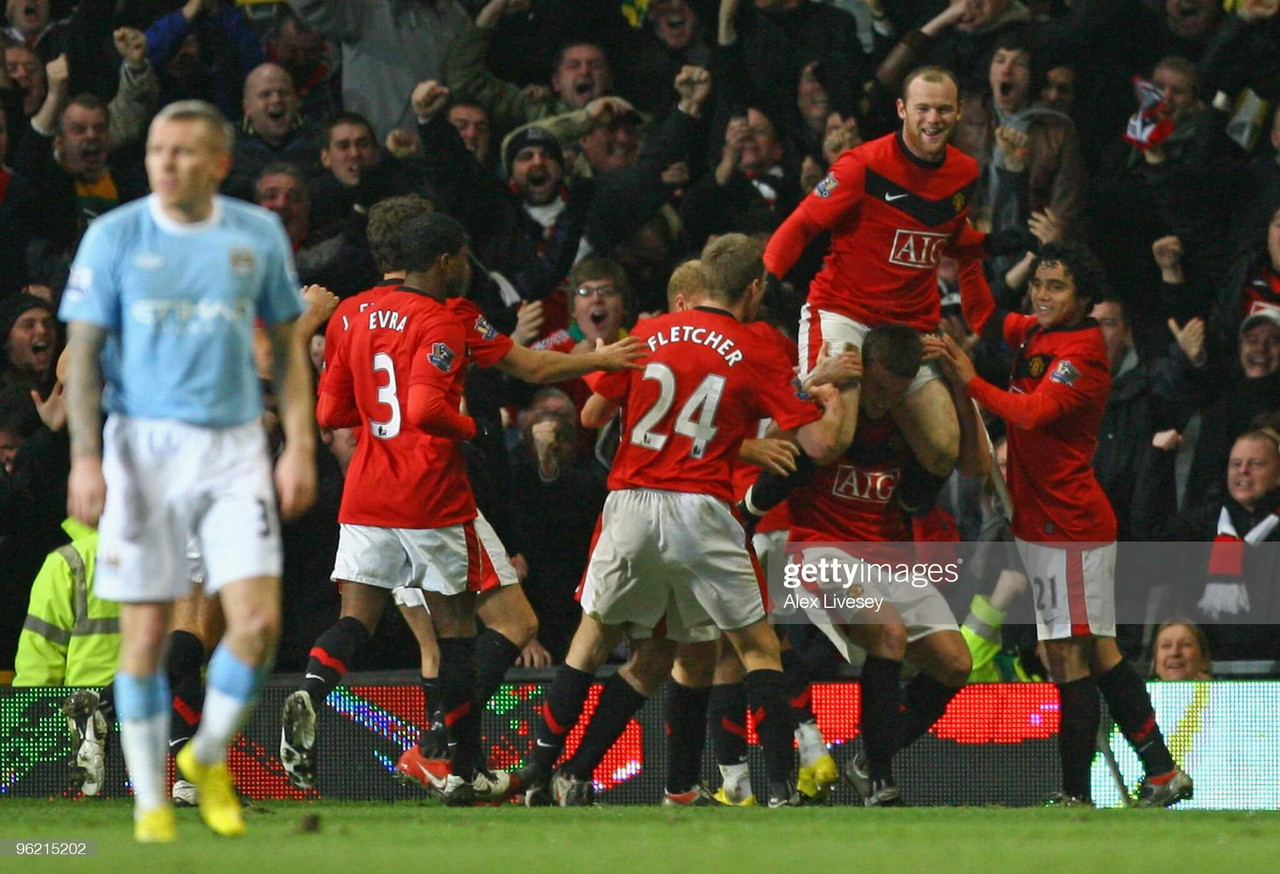129 days later, it happened again. They had done what they always did. Just when the match was well on its way into extra-time, the never-say-die attitude of Manchester United had reared its head once more.
It was heartbreak for the blue half of Manchester. The dreams of a first Wembley final in twenty-nine years were dashed by Wayne Rooney’s 92nd-minute goal, sending United into their second consecutive League Cup final. It was just over four months after Michael Owen had condemned Manchester City to a late derby defeat in the Premier League, with a 95th-minute goal that sent Old Trafford into raptures.
While both sides have evolved in the eleven years since that frantic night at Old Trafford, the long-standing hatred between the two halves of Manchester hasn’t weakened. This is all despite United’s below-average fortunes since Sir Alex Ferguson’s retirement in 2013, and City’s upturn in fortunes that has included four Premier League titles, two FA Cups and a monopoly over the League Cup – the trophy that the red side of Manchester are aiming to reclaim for the first time in four years.
-
The difference in the two ties
The run that sent United into the semi-final of the 2009-10 League Cup is fairly comparable to the one that Solskjaer’s side has experienced this season. Two Premier League teams then – Wolves and Tottenham Hotspur – as well as a Championship outfit – Barnsley – compared to this season’s Premier League duo of Brighton and Hove Albion and Everton, as well as Championship side Luton.
The key difference on Wednesday evening will be that, though nearly seventy-five thousand crammed into Old Trafford on a cold January evening in 2010, the attendance this week will be zero – save for officials and journalists. It’s a shame. Derbies are meant for two sets of supporters, and should be a raucous atmosphere between the two teams - but this week each group of fans will be sat at home from their homes, mostly in Tier Four of the UK’s Covid-19 specifications.
Another difference between the two games will be the fact that, eleven years ago, the match was played over two legs. This season’s semi-final will be a one-legged affair. Whether this benefits United is unclear, considering they won just one match of last season’s three semi-final appearances (the second leg against City at the Etihad Stadium, a 1-0 victory won very much in vain, thanks to City’s first-leg dominance).
The first leg of the semi-final in 2010 saw a nervy affair at Eastlands. Ryan Giggs gave United an early lead, bundling the ball home after poor defending had left the goal empty. While the Reds had an early control of the game, it would be Carlos Tevez, the striker who had crossed allegiances in the summer, who would drag City back into the tie.
Two minutes before the interval, the Argentinian smashed a penalty into the roof of the net to bring the two sides level. And then, twenty minutes into the second half, a cross into the box found Tevez, who nodded past Edwin van der Sar to give City the advantage going into the second leg at Old Trafford.
The first half of the return leg passed without a goal, but both Tevez and Micah Richards forced great saves from Van der Sar. However, a tumble from Nani in the box allowed for the ball to roll to Paul Scholes just inside the penalty area, who slotted home past Shay Given. Ferguson’s side edged ahead on aggregate when Michael Carrick fired past Given after Darren Fletcher set up the midfielder, but Tevez flicked Craig Bellamy’s sumptuous cross past Van der Sar to level up the scores overall.
It set up the grandstand finish that followed.
-
Can Manchester United score? They always score.
A corner in stoppage time. A quick pass from the set-piece finds Giggs. The unorthodox right-footed cross from the Welshman is perfectly-weighted, over the heads Scholes and Dedryck Boyata, who are battling at the near post, to find Wayne Rooney, who neatly heads past Given, seeming immune to the chaos surrounding him in the box – as was so often the case in a season that would have broken records, had he not suffered an injury late in the season, ending his season as well as United’s own title hopes.
Pandemonium ensues.
Right place, right time ⚽#OnThisDay 10 years ago, @WayneRooney won the derby late on with this header! #MUFC #GoalOfTheDay pic.twitter.com/YIt9vTUwoG
— Manchester United (@ManUtd) January 27, 2020
Again, it’s devastating that a similar goal on Wednesday will not be able to evoke the same reactions from Old Trafford, a stadium - especially on derby day - that would usually descend into bedlam in the event of a last-minute goal. It would seem likely given how often this United side likes to score late, with their ‘attack-is-the-best-form-of-defence’ policy.
And given how Manchester City have performed on occasion this season, as well as seeing a fair number of players absent due to Covid-19 regulations being broken, it’s not completely beyond imagination for United to be in this game – though City’s comfortable dispatchment of Chelsea on Sunday night will ensure United cannot rest on their laurels regardless of any absences from Pep Guardiola's men.
Last season’s poor form in semi-finals could also impact how Solskajer’s side approach the tie. With no possibility of a second-leg resurgence, United’s chance at silverware could come to a screeching halt on Wednesday evening, and give City a chance at a fifth Carabao Cup win in six seasons. The Reds crashed out of all three knockout competitions at the semi-final stage last term, so the question of whether this becomes a psychological issue for Solskjaer’s men will definitely return should City triumph.
However, a victory for United would be monumental. It would give them a chance to face either Spurs or in-form Brentford at Wembley and potentially show what winning means for the more inexperienced members of the youthful squad. Indeed, the League Cup victory of 2006 for Sir Alex Ferguson’s men kickstarted an incredible run of trophies after a baron spell in the silverware department – and a League Cup win could have a similar effect on this United team.
Indeed, a win over Manchester City in the semi-final did the job for Ferguson’s men eleven years ago – but Solskjaer will certainly hope it won’t take another late winner to secure the victory.









































